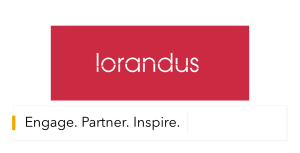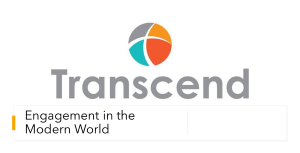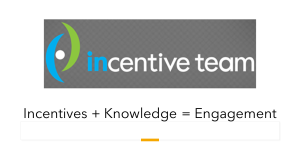Practicing the Power of Nice
Linda Kaplan Thaler, one of the keynote speakers at this year’s Enterprise Engagement Expo, believes that – contrary to the conventional wisdom – ‘nice guys finish first’
| Guiding Principles of Nice | Collaboration and Innovation |
| Employee and Customer Engagement | ‘Nice’ Incentives |
| Recognition Culture |
By Ira Ozer
The Kaplan Thaler Group (KTG) was founded in 1997 by Linda Kaplan Thaler, CEO, and Robin Koval, President, who grew it from a start-up to more than a billion dollars in billings in a decade, essentially because they hired excellent people and nurtured them in a “nice” culture, with mutual respect, trust, fair treatment and collaboration, which in turn created breakthrough ideas and successful campaigns.
As Kaplan Thaler explains, “People will not work creatively unless they feel safe and secure, in a non-threatening environment. So at the KTG we respect individuals, while at the same encourage team collaboration.” Adds Koval: “We know from experience at many agencies that clients who treat agency people nicely attract the best and brightest creative people to their accounts, and clients who treat agency people confrontationally with no respect are left with average people on their accounts. This applies in any type of supplier relationship as well, not just advertising agencies.”
Guiding Principles of Nice
As a result of their success – and to dispel the myth “Nice guys finish last” (attributed to baseball manager Leo Durocher) – Kaplan Thaler and Koval wrote a book in 1996 entitled The Power of Nice, How to Conquer the Business World with Kindness. This book lays out six guiding principles and offers proof through case studies of successful companies and people that “Nice guys actually finish first.” The principles are:
- Positive impressions are like seeds. Simple gestures such as smiling, saying ‘thank you’ and laughing heartily grow and expand beyond just that moment.
- You never know. Treat everyone as the most important person in the world, because you never know who they know and what great things can happen.
- People change. You never know who might become important five or ten years from now, so be nice to everyone, including receptionists and assistants.
- Nice must be automatic. Nice needs to become a habit, not something you turn on and off when it benefits you.
- Negative impressions are like germs. At first you might not see the impact of making rude gestures and remarks, but they are silently infecting you and those around you.
- You will know. Although you might not see someone again whom you treat badly – you will know – and it might affect your future relationships.
“We don’t believe that businesses have to be run using a win/lose philosophy [where] if we win, our competitor loses,” Kaplan Thaler explains. “We believe that everyone can win – including our competitors – if we all work to bake a bigger pie.”
In praising The Power of Nice, Jay Leno, who wrote the forward, adds, “doing good things will improve your life. Let’s face it, you cannot eat the whole pie… eat some and then give whatever is left to other people.”
Employee and Customer Engagement
The evidence is clear: Companies must do a better job of engaging their employees, suppliers, channel partners and customers. According to research conducted by Gallup, only 27% of employees at U.S. companies are engaged with their employers, 59% of employees are disengaged and 14% are actively disengaged.
Kaplan Thaler emphasizes that “this causes not just a less productive environment, but a toxic one. We know that to engage employees, they must feel valued and that they’re contributing, their supervisors must recognize and coach them in a positive way and they must work in a happy environment with nice people.” This allows them to best deal with stress, change and deadlines, while still producing excellent work. “It costs a company 30% of an employee’s salary to replace them, and employees who are engaged are much more likely to stay, in addition to being much more productive,” adds Koval.
Kaplan Thaler points out that in today’s difficult economy, many companies do have to lay off some percentage of their workforce, but she emphasizes that “if two people are doing an equally good job, the one who is more considerate will most likely keep the job. This doesn’t show up on reports, but managers just feel that nice people are more valuable – and the same holds true for customer choices.”
Koval points out that “there’s a huge trend in the consumer marketplace, that people want to do business with people and companies they believe not only sell goods and provide services they want, but also have ‘like-mindedness’ or affinity with them. Companies that are nice and fair do better with customer loyalty, in addition to employee engagement and retention, and this is particularly true in tough times.” Kaplan Thaler adds, “But being nice doesn’t mean being wimpy or not competitive. Intense deadlines focus people and boost commitment and productivity, but this is only effective when there’s a culture of “no personal attacks.”
Recognition Culture
“Nice can be free – in fact, you can’t buy it,” says Koval. “It starts with a culture of recognition and trust. Even in tough times, companies can show extra appreciation by having simple gatherings. At the KTG, we create a “hearth” where people can mingle and connect with one another. You don’t need to have expensive offsite dinners and meetings to build a nice culture – simple pizza parties or birthday-of-the-month ice cream sundae socials work well to show people they’re appreciated. Recognizing people on their birthdays is an excellent touch that shows ‘the boss’ cares about them.”
Shifting the corporate culture from hostile to nice is a big commitment, and it must be led by senior management – with middle management education, supervisor training and coaching – and supported by properly structured reward, recognition and innovation programs. Managers need to learn how to properly recognize their employees, and it’s critical for them to show respect and genuine caring to lead and coach subordinates effectively. The Power of Nice website has received hundreds of e-mails from employees about their personal treatment by their bosses, most of which is negative. That says a lot about how far we have to go.
Collaboration and Innovation
“For an employee, their direct supervisor represents the company,” Koval explains. “Supervisors should be trained to make people feel comfortable sharing and collaborating on their ideas, but as Harry Truman said, “Take credit for none of it.” To further advance their philosophy, Kaplan Thaler and Koval are launching a new book in May 2009 about The Power of Small. In this book, they emphasize that it’s not the big ideas that impact company growth so much as the small, incremental improvements. So having an informal process, along with a formal program to gather ideas, is critical to every company’s growth, and this can only occur for companies with a “nice” culture.
“Employers are looking for people who can collaborate and have social skills, not necessarily geniuses, says Koval, “Often, people with higher ‘social IQs’ do better in business than people who had higher grades in school. The best salespeople have superior social skills, as do the best physicians.”
‘Nice’ Incentives
With respect to compensation and incentives, Kaplan Thaler and Koval agree that if people are compensated fairly for their job, that there’s equity in terms of treatment and the company provides a nice culture, additional money will not motivate increased performance and retention. “Money doesn’t substitute for a hostile work environment,” says Kaplan Thaler, with Koval adding, “If you just focus on results and reward financially, then bad behaviors are rewarded and a toxic environment is created, which is evidenced by many of the problems in financial services firms today.”
Using tangible incentives, including merchandise, travel experiences and special events, are an excellent idea, and programs should be structured in such a way so that they don’t just reward just the results of increased performance, but the positive behaviors that are the leading indicators of success. To spread this gospel, Kaplan Thaler and Koval are making their services and methods available for corporate reward, recognition and innovation programs.
“For several years, companies have hired us to be keynote speakers at a variety of employee and sales conferences,” says Koval, “and we’ve received tremendous support from managers and employees who believe that being nice creates superior results. But we haven’t had the tools to help companies implement a ‘Power of Nice’ recognition program – until now. In May 2009, we’ll also be introducing an integrated system that will help companies communicate, educate, survey, quiz, recognize and reward their employees based on the principles in The Power of Nice.”
For more information on the Kaplan Thaler Group and The Power of Nice, go to: www.kaplanthaler.com

















